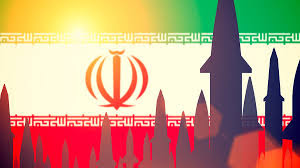
Mandatory Digital ID Is Here!
THE MOUTH OF THE BEAST = UK = England Is First Domino To Fall In New Digital Order
Just last year, the UK government promised citizens there would be no national identity cards. The idea was politically radioactive – a symbol of Big Brother surveillance, of a state watching every citizen. Yet now, the government is preparing to announce digital ID mandatory for all adults, transforming a once-unthinkable intrusion into an impending reality.
Signs of the Times
Clinton’s Dangerous Words: Targeting Christian White Men In A Culture On Edge

When a national figure of Clinton’s stature singles out a demographic–especially one defined by race, gender, and faith–she isn’t merely criticizing ideas. She is putting a target on people’s backs. She is telling millions of Americans that there is a class of villains who are inherently dangerous to society. And in today’s environment, where anger routinely spills into violence, that is a profoundly dangerous game to play.
Lutherans Warn Certain Parts Of The Bible Are ‘Harmful’

The Evangelical Lutheran Church in America has done it again. In a shocking display of arrogance, a spokesperson at its 2025 Churchwide Assembly publicly condemned certain Bible passages as “harmful” and “patriarchal.” In other words, the ELCA is now on record declaring that God Himself made mistakes when He inspired His Word.
Gog and Magog Update
From The Rubble To Russia (Gog) : Iran’s (Magog) Missile Comeback And Prophetic Alliances

Fresh satellite images reveal what many feared: Iran is rapidly reconstructing its missile factories, the same sites Israel had buried in rubble just months ago.
The eyes of the world are again turning toward Tehran. Fresh satellite images reveal what many feared: Iran is rapidly reconstructing its missile factories, the same sites Israel had buried in rubble just months ago. Far from being cowed by Israeli airstrikes, the regime is pouring concrete, raising scaffolds, and laying the groundwork for a new wave of military production.
And as if that weren’t enough, Iran has now signed a sweeping agreement with Russia to build nuclear power plants on its soil–solidifying an alliance that reaches beyond energy into raw geopolitical muscle.
This isn’t about rebuilding what was lost. It’s about preparing for what comes next.
The Missile Comeback
The Associated Press, analyzing Planet Labs satellite images, confirms active construction at Parchin and Shahroud–solid-fuel missile facilities bombed during “Operation Rising Lion” in June. Though the sites don’t yet have the planetary mixers required for mass production, experts warn it’s only a matter of time. China has been a past supplier, and Tehran has never lacked determination or patience.
Before the war, Iran could churn out more than 200 solid-fuel missiles a month, boasting an arsenal of some 2,500 rockets. Over a third were unleashed on Israel during the recent conflict. If Iran regains its production infrastructure, its stockpile could surge past 6,000, even 10,000 within a few years. Israeli missile defenses–Iron Dome, David’s Sling, Arrow–may be extraordinary, but they were never designed to withstand an endless storm.
It’s no wonder Israeli officials are sounding the alarm louder than ever. Missiles, not centrifuges, may now be the most imminent existential threat.
Russia’s Nuclear Lifeline
Then comes Moscow. This week, Russia and Iran signed a memorandum of understanding to build nuclear power plants, including small modular reactors, with larger projects already being discussed. Rosatom, Russia’s nuclear giant, calls the deal “strategic.” Iran insists it needs the power to fix rolling blackouts. But the geopolitical reality is clear: Russia is giving Tehran more than electricity–it’s giving it legitimacy, cover, and a technological backbone.
By embedding itself in Iran’s nuclear program, Russia ensures that any future attempt to isolate or sanction Tehran will run into stiff resistance. For Iran, it’s a shield; for Moscow, it’s leverage. Together, they are redrawing the balance of power in the Middle East.
Prophecy and Geopolitics Collide
For students of the Bible, none of this comes as a shock. In Ezekiel 38-39, the prophet described a day when a coalition of nations would rise against Israel. Persia–today’s Iran–was listed prominently, alongside allies from the north and south. Many interpreters identify Turkey with “Gomer” and “Togarmah,” while “Cush” and “Put” are often associated with North African nations stretching from Sudan to Libya. Together with Russia, they form a massive alliance–exactly the kind of bloc Iran is working to build today.
Think about it: Iran cannot destroy Israel on its own. Its leadership knows this. But what if it stood shoulder to shoulder with Russia, Turkey, and sympathetic North African states? What if Hezbollah in Lebanon, the Houthis in Yemen, and militias across Iraq and Syria joined the fray? Suddenly, the prophecy that once seemed distant feels chillingly plausible.
Iran’s leaders speak openly of revenge. Their humiliation in recent wars fuels their rage. But their calculation is cold: alone they cannot succeed, but with allies, they may finally overwhelm. This is the heartbeat of Ezekiel’s vision: an alliance against Israel so vast it seems unstoppable–until God Himself intervenes.